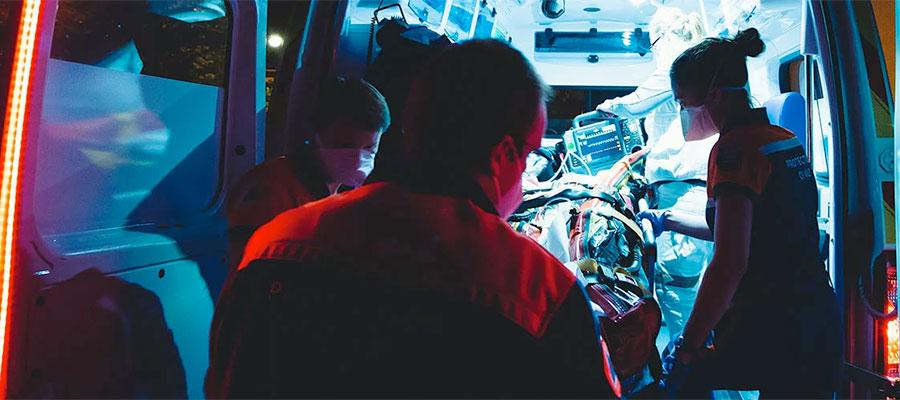Strengthening Crisis Management in Rural Health Care

Managing a crisis calls for strong leadership, a resilient workforce and reliable communication. Health care leaders across the country discussed crisis management during several sessions at the AHA Rural Health Care Leadership Conference in San Antonio in February. In addition, health care leaders at the conference talked about cyberattacks, on-site hospital violence and the ongoing COVID-19 pandemic, sharing their strategies and challenges in managing such crises.
Among the conference speakers were Adam Apolinar, CEO of Uvalde Memorial Hospital, and Eric Epley, executive director and CEO of the Southwest Texas Regional Advisory Council for Trauma. They described their organizations’ experiences responding to the mass shooting at Robb Elementary School in Uvalde in May 2022.
These robust discussions highlighted several key takeaways for health care organizations, particularly those in rural communities, in strengthening crisis management.
Leaders have a responsibility to develop their crisis leadership skills. As trusted voices in their communities, health care leaders play a critical role in managing public health emergencies. Crisis scenarios, which can be unpredictable, require hospital and health system leaders who are prepared to navigate uncertainty and make difficult decisions quickly, effectively and collaboratively to protect their patients, teams and communities.
In recent years, the need for effective crisis leadership has increased. Health care leaders have spent the past three years responding to the ever-evolving COVID-19 pandemic, with many leaders simultaneously confronted with overlapping crises such as mass shootings, wildfires, hurricanes, cyberattacks and hospital violence.
Studies have shown that there are specific competencies and skills that can contribute to effective crisis management, and that sharing experiences and best practices with other leaders can help develop these abilities. By engaging in conversations on crisis leadership, health care leaders can build their knowledge and skills, enhance their organization’s preparedness for emergencies and ensure people in need receive high-quality care.
Sharing information, mitigating misinformation and establishing public trust are interwoven. In discussing the experience responding to the mass shooting in Uvalde, Epley explained that “the fog of war is real” during a crisis. Informed decision-making relies on timely, accurate and coordinated communications, but information can be limited and piecemeal at the onset of an incident.
Health care leaders have a professional and civic responsibility to ensure that accurate information is being communicated to their patients, teams and the public. Misinformation can create confusion, mistrust and ultimately harm individuals. Inaccurate information also can damage a hospital's or health system’s reputation and credibility, which can lead to decreased patient trust and, potentially, legal repercussions.
Additionally, with the increased influence of social media and online platforms, misinformation can spread rapidly and be difficult to contain. During a public health emergency, health care leaders must be equipped with strategies to ensure that accurate and reliable information is being shared with their teams, patients and the larger community.
Building workforce resilience is a worthwhile investment. The workforce is the backbone of any health care system, particularly in rural communities where resources and capacity are limited. The COVID-19 pandemic, along with other overlapping crises and broader workforce shortages, has had a profound impact on the resilience and unity of front-line workers.
Recovery after a public health emergency is a long-term process. Apolinar and Epley emphasized this and shared how they are continuing to support their workforce and the larger community 10 months after the Robb Elementary School shooting.
Building and strengthening the resilience of the workforce are crucial, though this cannot be achieved overnight. It requires health care leaders to consistently prioritize strategies, tools and technologies that build capacity and foster resilience. By investing in the workforce and promoting a culture of resilience, health care leaders can help ensure their organizations are well prepared to face future public health emergencies and challenges and provide high-quality care to those in need.
Convening Leaders for Emergency Preparedness and Response
The AHA is committed to supporting hospitals and health systems in their efforts to prepare for, respond to and recover from public health emergencies. In partnership with the Administration for Strategic Preparedness and Response, the AHA leads Convening Leaders for Emergency and Response (CLEAR), an initiative dedicated to fostering collaboration and alignment between health care and public health to strengthen our nation’s emergency management systems.
The CLEAR Field Guide for Emergency Preparedness offers a comprehensive framework that aligns the priorities and actionable strategies of health care, public health, fire/EMS and emergency management professionals, enabling them to work collaboratively and be better equipped to respond to future emergencies. The guide is the first output of a planned long-term, sustainable and impactful partnership to support the health care field moving forward.
Helena Bonfitto and Benjamin C. Wise are senior program managers with the AHA Funded Partnerships team.
Presented as part of Cooperative Agreement HITEP210047, funded by the Administration for Strategic Preparedness and Response (ASPR). The Health Research & Educational Trust, an American Hospital Association 501(c)(3) nonprofit subsidiary, is a proud partner of this Cooperative Agreement. The contents of this publication are solely the responsibility of the authors and do not necessarily represent the official views of the Administration for Strategic Preparedness and Response (ASPR) or the Department of Health and Human Services (HHS).

